The 16 Best Face Creams for Eczema That Treat Dry, Itchy skin
An application a day keeps the irritation away.


Jenny Hollander
Allow me to be blunt: Eczema on your face isn’t fun. It can be wildly itchy, sting, burn, cause bumps and blisters—and a regular moisturizer isn't going to cut it. The good news: Eczema is so common (up to 15 million people have to deal with it) that dermatologists have a pretty solid idea of what causes it (scroll down for the info) and are well-versed in the best face creams for eczema to alleviate symptoms. “Dry skin can cause inflammation, which leads to eczema,” explains Nava Greenfield, M.D. and board-certified dermatologist at Schweiger Dermatology Group.
As such, cosmetic chemists, doctors, and other beauty pros have spent years cooking up ultra-hydrating balms, creams, and ointments that will give eczema-prone skin an extra hefty dose of hydration. Here, we've rounded up the best.
What to Look For in an Eczema Face Cream
- Texture
“I encourage my patients to look for thicker moisturizing creams, balms, and ointments,” says Dustin Portela, D.O. and board-certified dermatologist at Treasure Valley Dermatology. By nature, face creams for eczema will be on the thicker side, but there is an element of preference as well. Some may prefer a silky cream, while others will gravitate towards a very occlusive balm.
- Formulation
Most face creams for eczema include ingredients like colloidal oatmeal and ceramides—that's the baseline. However, Dr. Greenfield urges patients to take a closer look at the ingredient list. “Avoid any product with fragrance and use only products formulated with sensitive skin,” she advises.
The Best Face Creams for Eczema
- The Best Cream for Eczema on the Face Overall: Eucerin Eczema Relief Flare Up Treatment
- The Best Daily Cream for Eczema on the Face: Skinceuticals Triple Lipid Restore 2:4:2
- The Best Face and Body Cream for Eczema: La Roche-Posay Lipikar Balm AP+ Intense Repair Body Cream
- The Fastest Acting Face Cream for Eczema: First Aid Ultra Repair Cream
- The Best Preventative Face Cream for Eczema: Avene Cicalfate+ Restorative Protective Cream
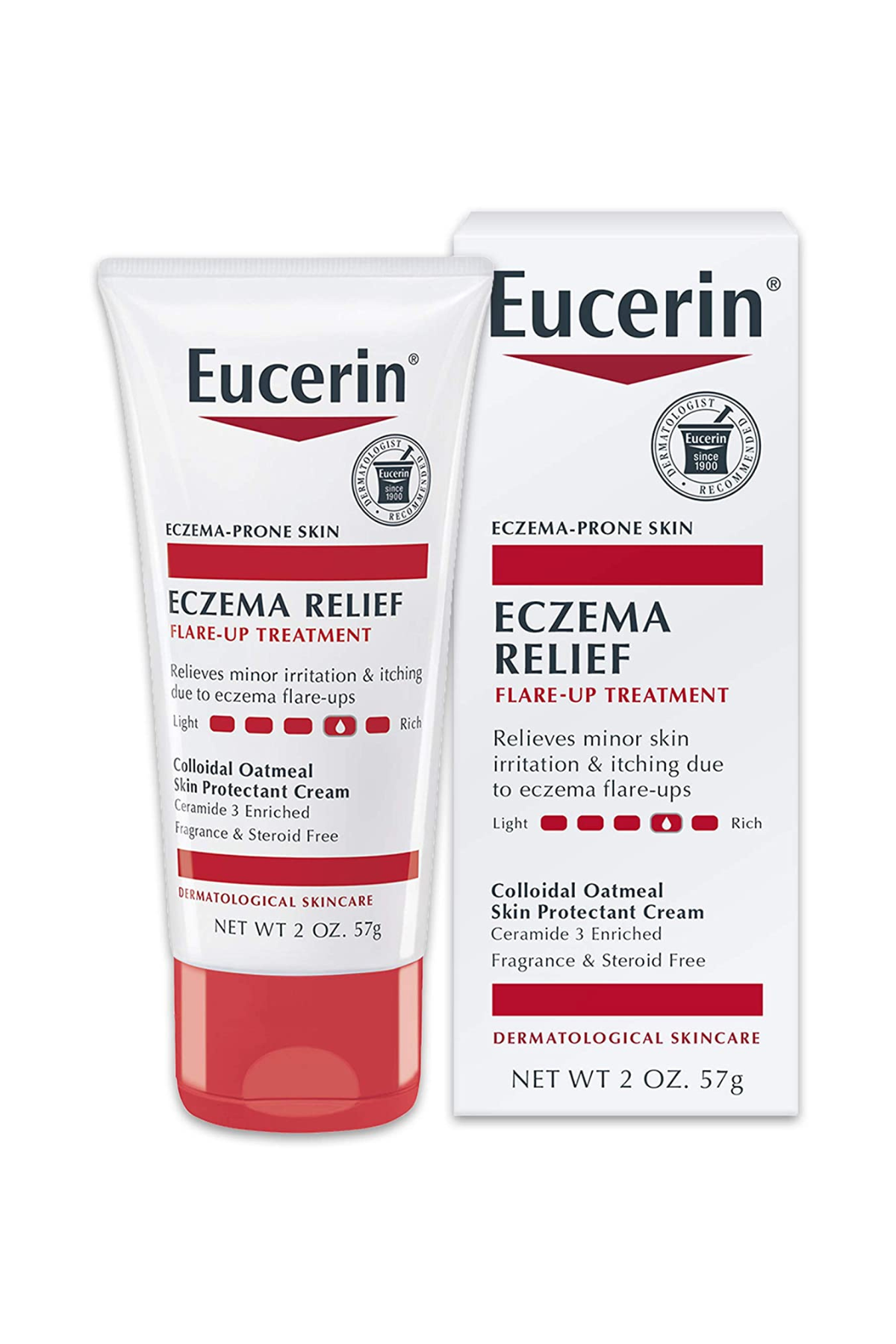
As someone who’s had eczema their entire life, I can confidently say that you won’t be disappointed by Eucerin. I make a point to slather my body in their cream daily as a preventative measure, but I always have this on standby for facial flares. Thanks to a formula packed with uber-calming colloidal oatmeal and a trio of hydrating ceramides, it works wonders on itchy, scaly patches. There are no steroids in it, so feel free to reapply whenever your heart desires.
Pros: Instantly soothing; Affordable; Editor favorite
Cons: Hard to rub in
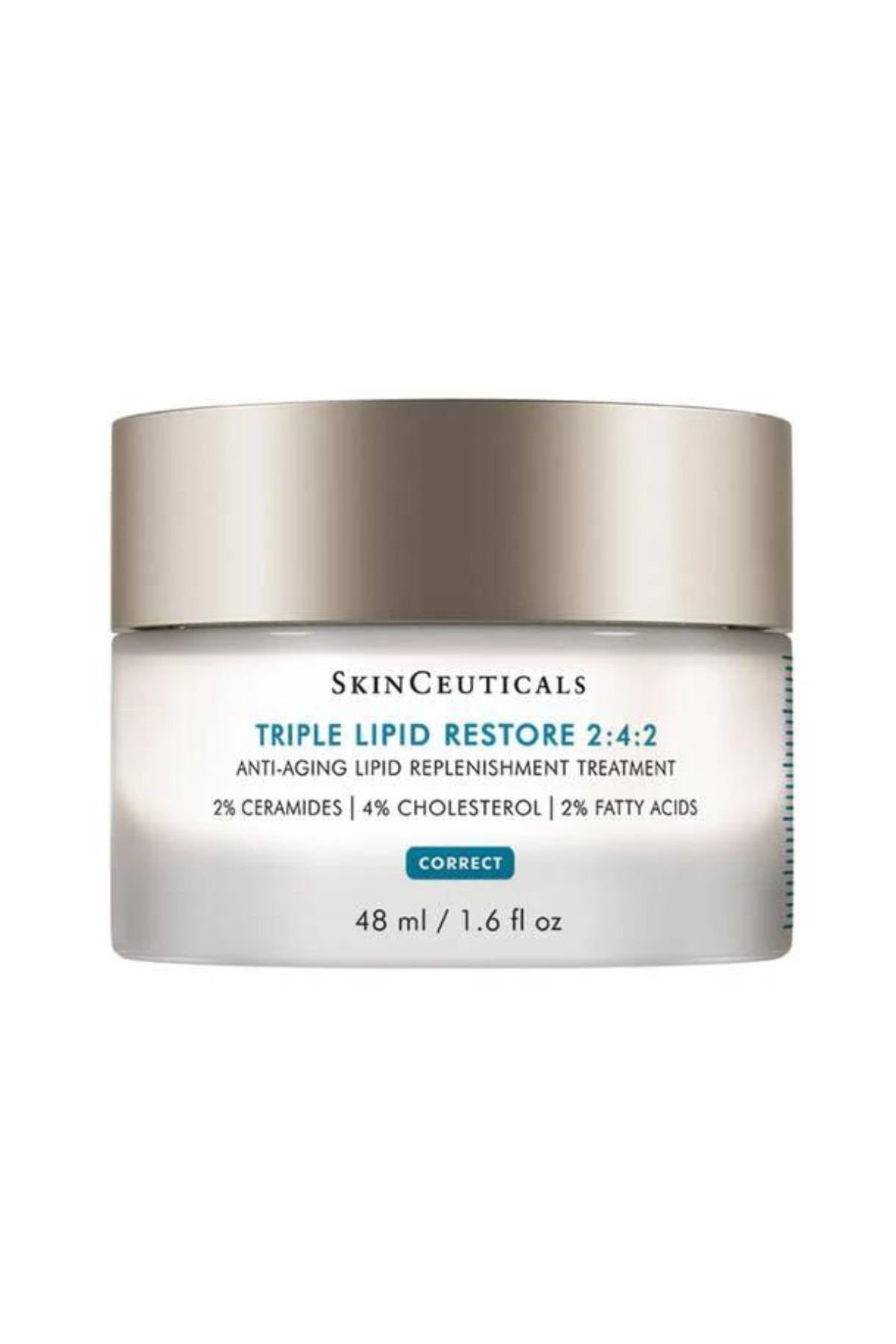
While this isn’t a specific eczema treatment per se, it is one of the best soothing, preventative face creams on the market. The lipid-packed formula focuses on repairing a damaged skin barrier, which is the main cause of an eczema flare. In addition to keeping easily irritated skin in a happy, healthy state (always the goal), it will also provide loads of additional benefits like plumping and evening-out skin texture.
Pros: Hydrating; Preventative; Good for every day use
Cons: Expensive; Not the best option for active eczema
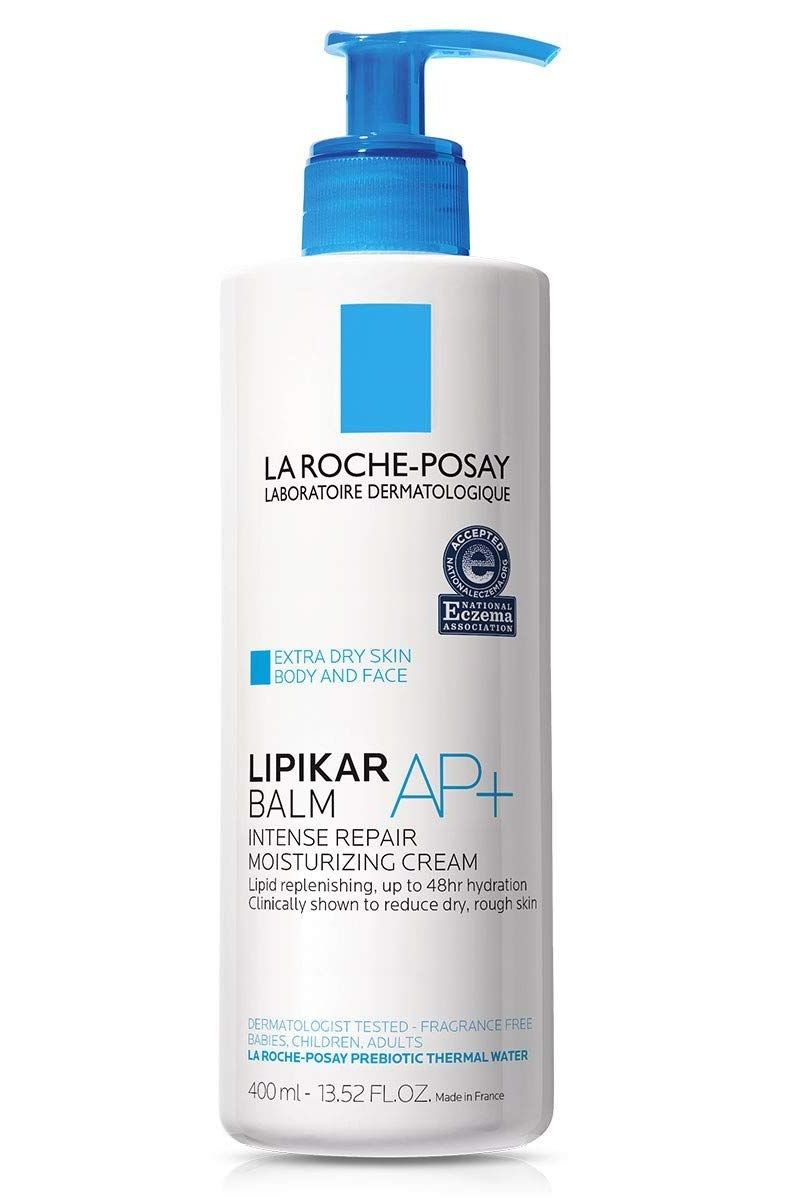
Eczema can spread—not between people, it isn’t chicken pox—from your face to your body. I'm skeptical about using a balm that works on your face and body, but this derm-loved staple is the exception. With main ingredients like shea butter and niacinamide, it will work on any skin area. “This product also has many clinical studies showing improvement in skin barrier and reduction of itch in patients with eczema,” says Dr. Portela.
Pros: For face and body; Dermatologist-approved
Cons: Users report pilling
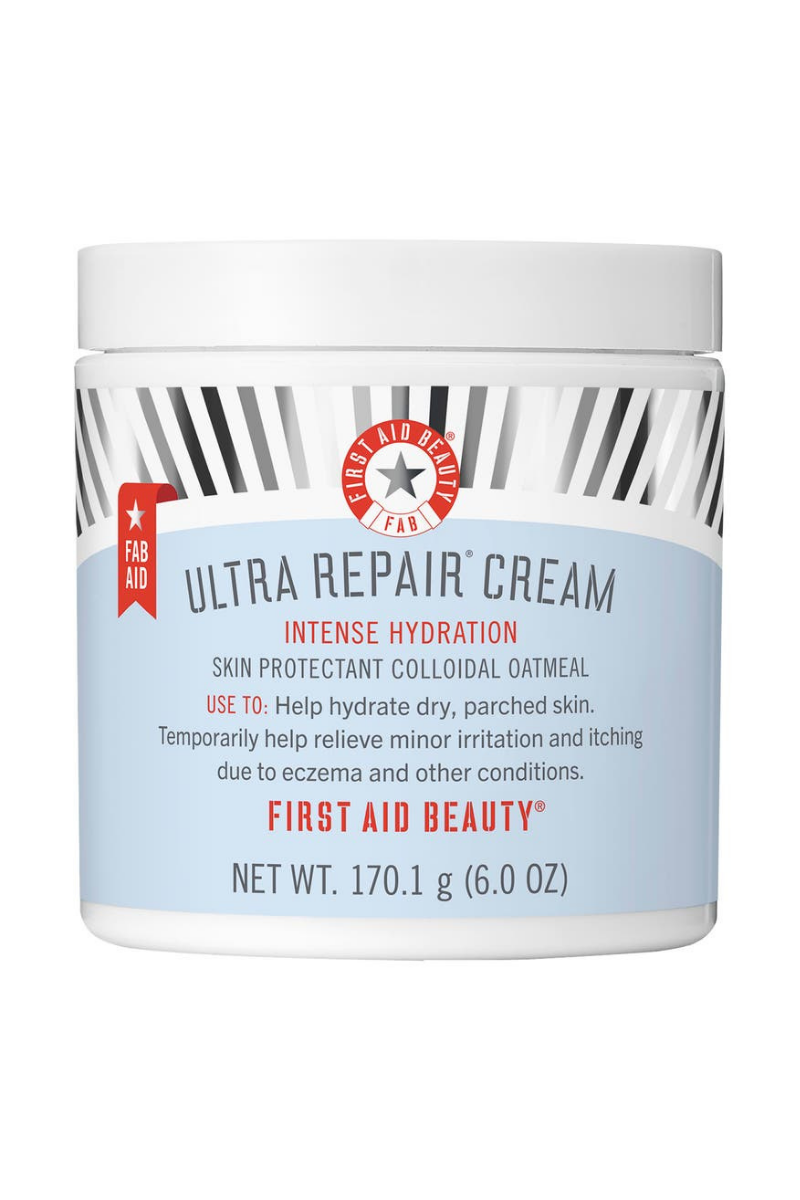
When my eczema was at its worst, I would dab some of this on my skin where it was feeling particularly itchy. Now, I always have a stockpile of this cream on hand. It's *that* good. And I'm not the only one to think so: A tub of Ultra Repair Cream is literally sold every minute.
Pros: Anti-itch; Editor-approved; Good for every day use
Cons: Expensive
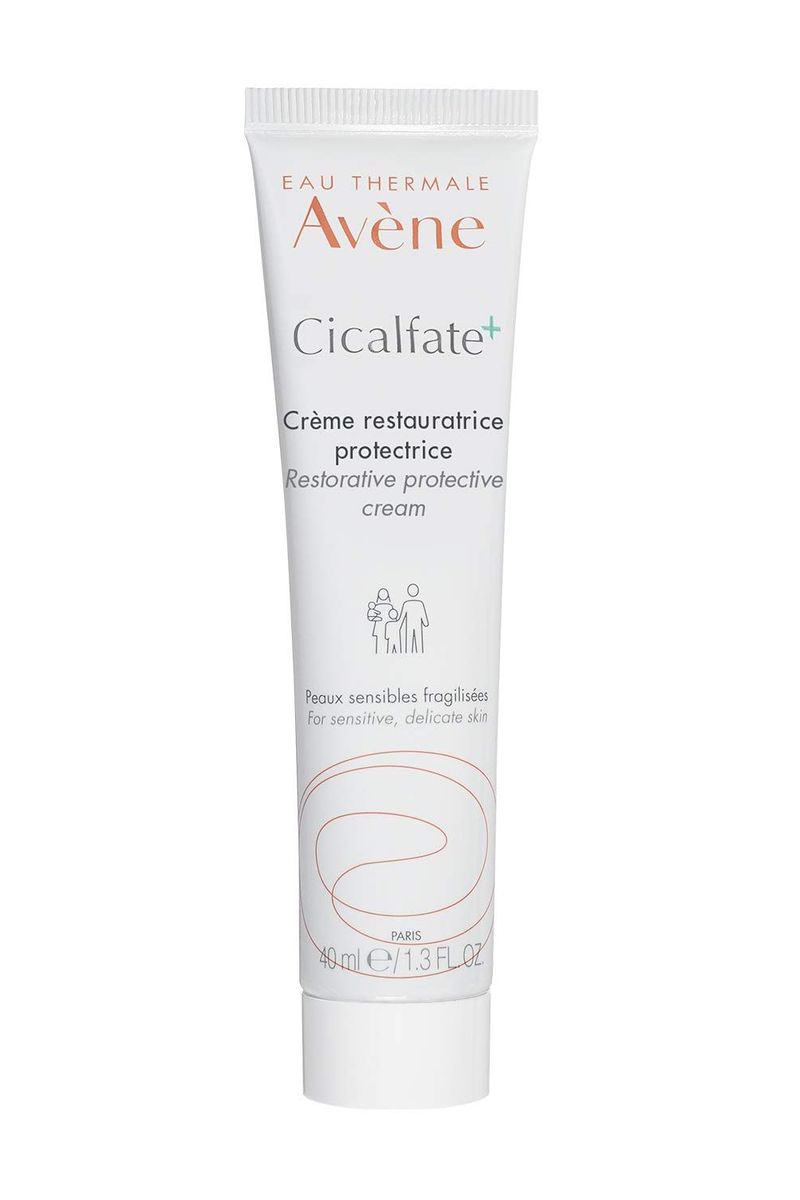
One patch of dry skin that isn't well-moisturized can kick-start the eczema cycle. Don't fret: This moisturizer will keep your skin hydrated for hours. Unlike Aquaphor and Vaseline, which can make skin shinier than the Tin Man in The Wizard of Oz, this cream will go on light and dries down pretty matte.
Pros: Long-lasting hydration; Not shiny
Cons: Not the best for active eczema (more preventative)
Also Recommended
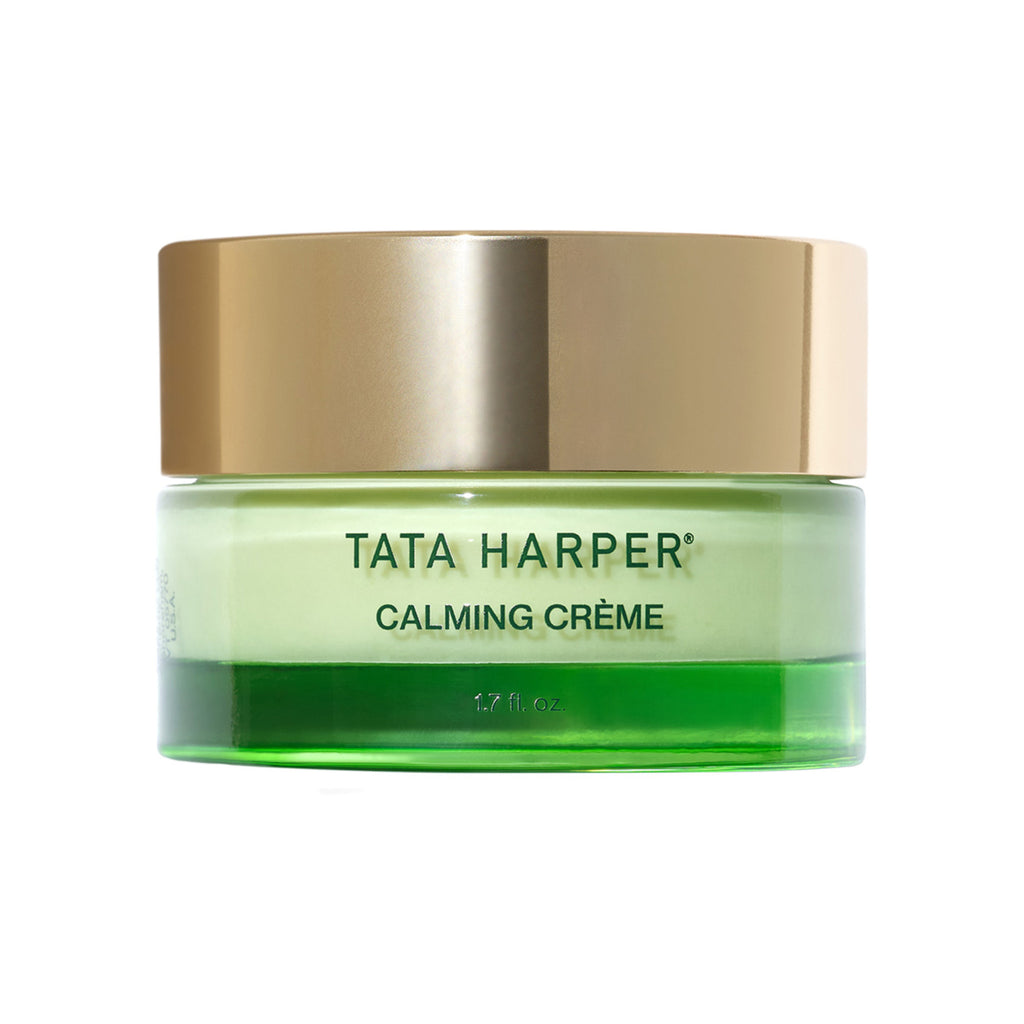
While this isn't the best cream to actively treat itchy eczema, it is an excellent option when your eczema is under control. With a seal from the National Eczema Association, you can be confident that this won't irritate your skin or incite a flare. A bonus: Your skin will feel soft and look more even-toned than ever. This luxe moisturizer completely removes my redness within just a few hours.
Pros: Calming; Deeply hydration; Eczema seal
Cons: Expensive
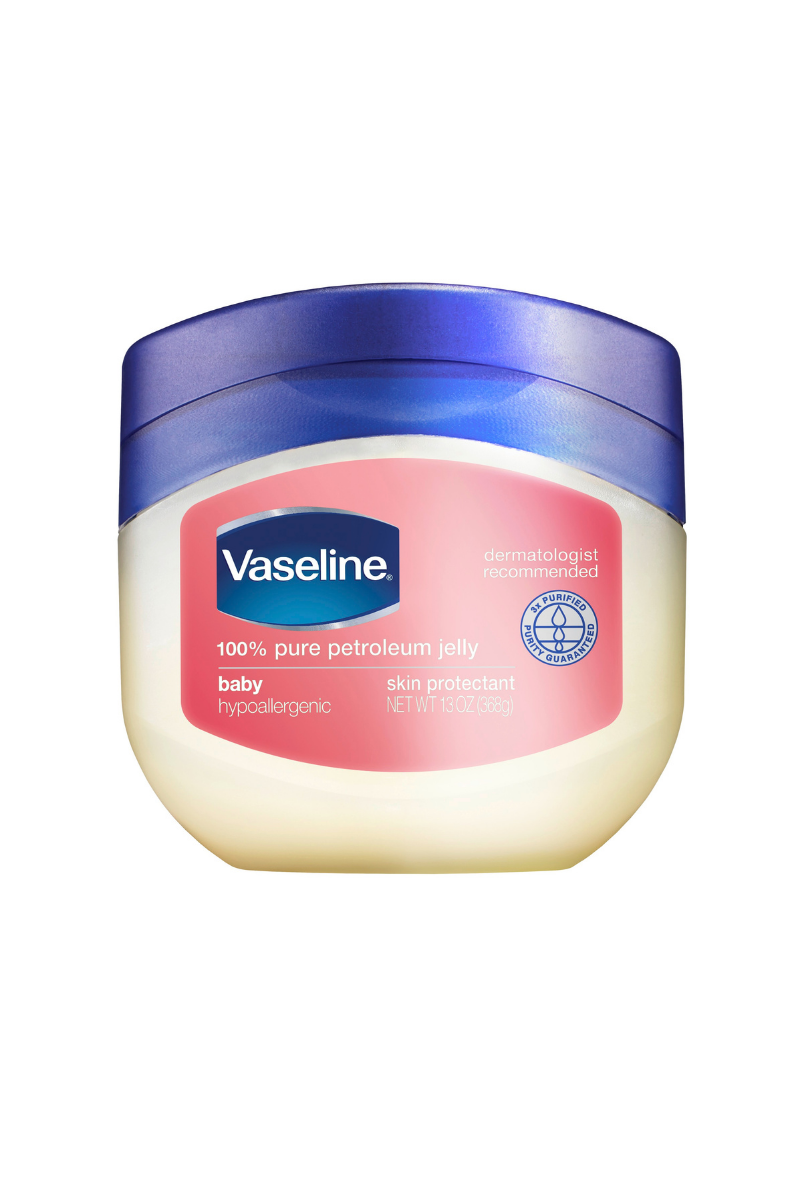
"I love Vaseline," says Mona Gohara, M.D. and board-certified dermatologist. "Especially around the eyes, where facial eczema is prevalent." While Aquaphor is part petroleum jelly and other ointments and oils, Vaseline is just pure petroleum jelly. (Again, if your skin is super-sensitive, go for the baby-friendly variety—the gentler, the better.) Vaseline is heavier than Aquaphor and is more of a protectant than a treatment. Try layering this on top of another cream for best results.
Pros: Affordable; Dermatologist-approved; Good for eye area
Cons: Not great for breakout-prone skin
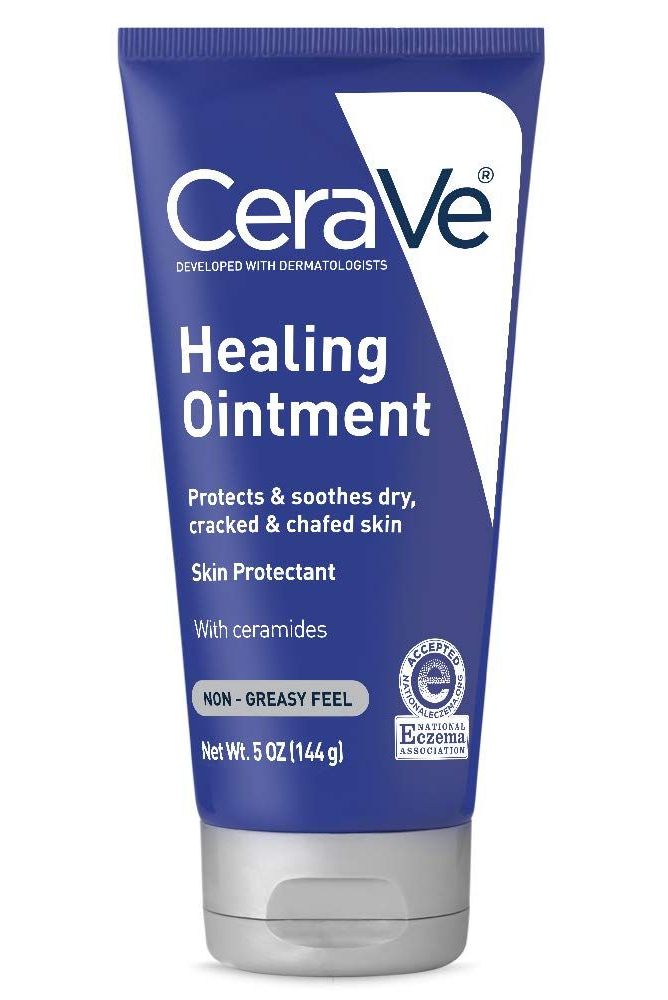
The holy grail, hero item, and cult favorite—the CeraVe Healing Ointment classifies as all of the above because of its benefits in locking in the needed moisture on the skin’s barrier. Dr. Portela loves this ointment because it instantly cures “cracked and fissured skin.” For best results, lather it on when you first get out of the shower.
Pros: Dermatologist-approved; Best for cracked skin; Affordable
Cons: Might break out acne-prone skin types
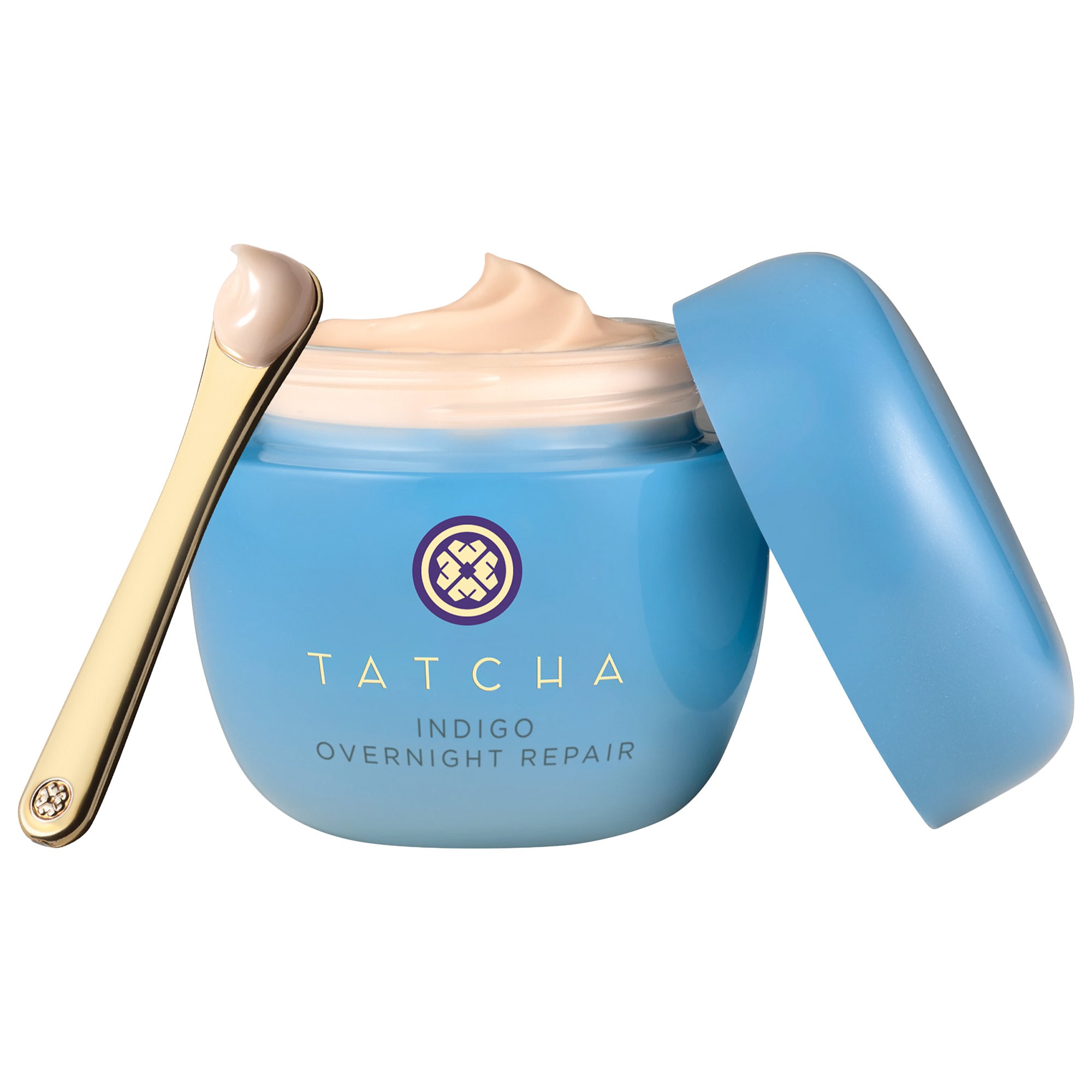
Because you have eczema doesn't mean unsexy beauty products$ are your destiny. Tatcha underwent rigorous testing to ensure their luxe, profoundly hydrating formula was safe for the most sensitive skin types. This silky moisturizer is my go-to when I want a glowy finish. The mix of hyaluronic acid, ceramides, and indigo extract instantly restores hydration to my complexion, evens out my tone, and soothes any dry patches.
Pros: Luxurious texture; Eczema Associate seal; Last a long time
Cons: Expensive
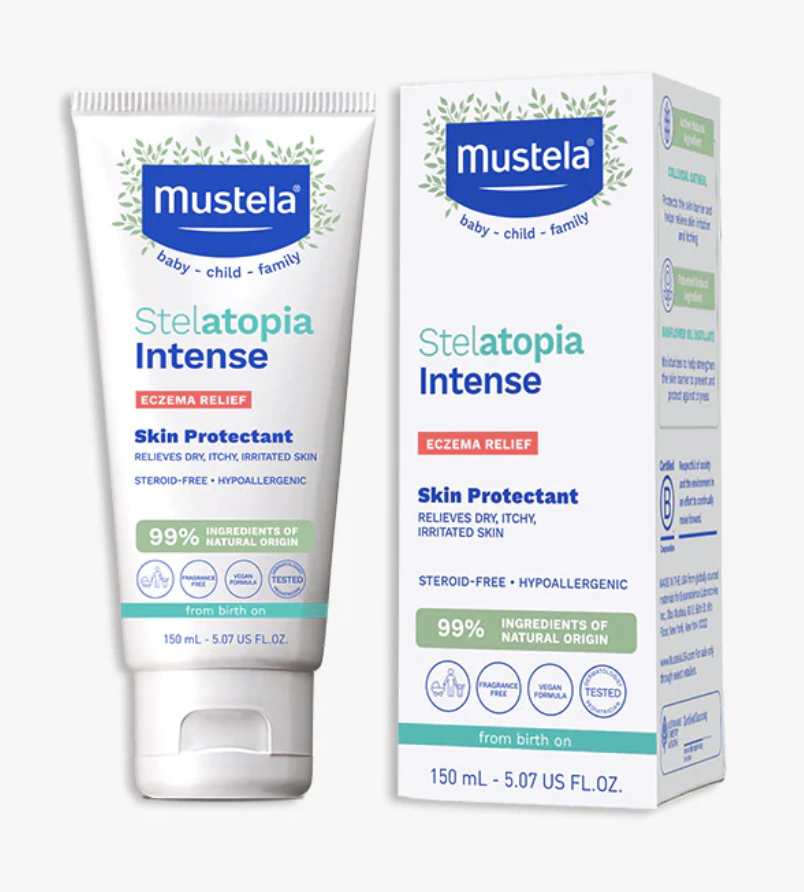
When my eczema flares, I want to calm it down as soon as physically possible. This Mustela cream is one of the fastest-acting products I've tried—I notice a huge difference in just 24 hours. Thanks to the sensitive, skin-friendly blend that includes colloidal oatmeal, sunflower oil, and avocado, my skin feels softer and looks less flaky immediately.
Pros: Great for kids; Fast-acting
Cons: Reviewers report an oily texture
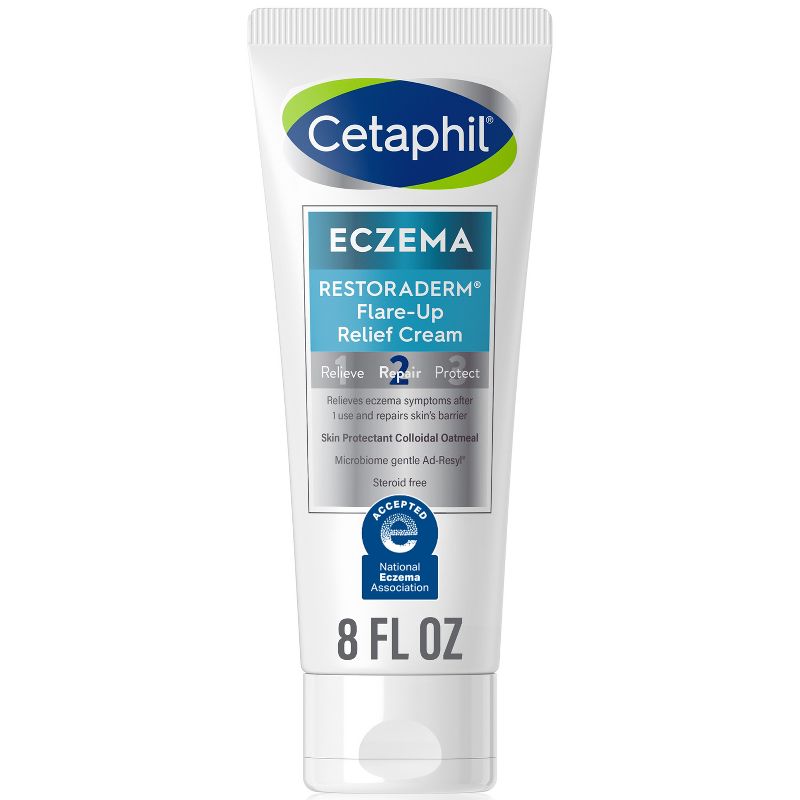
Clinically proven to calm down eczema symptoms after just one use (!!), I'm pretty justified to never leave the house without this little guy in my bag. Just a dime-sized amount of this colloidal oatmeal-infused product can bring me from a flare to a calm state in no time. It's thicker, so I prefer using it at night than during the day.
Pros: Affordable; Clinically tested; Dermatologist-recommended
Cons: A little thick for daytime
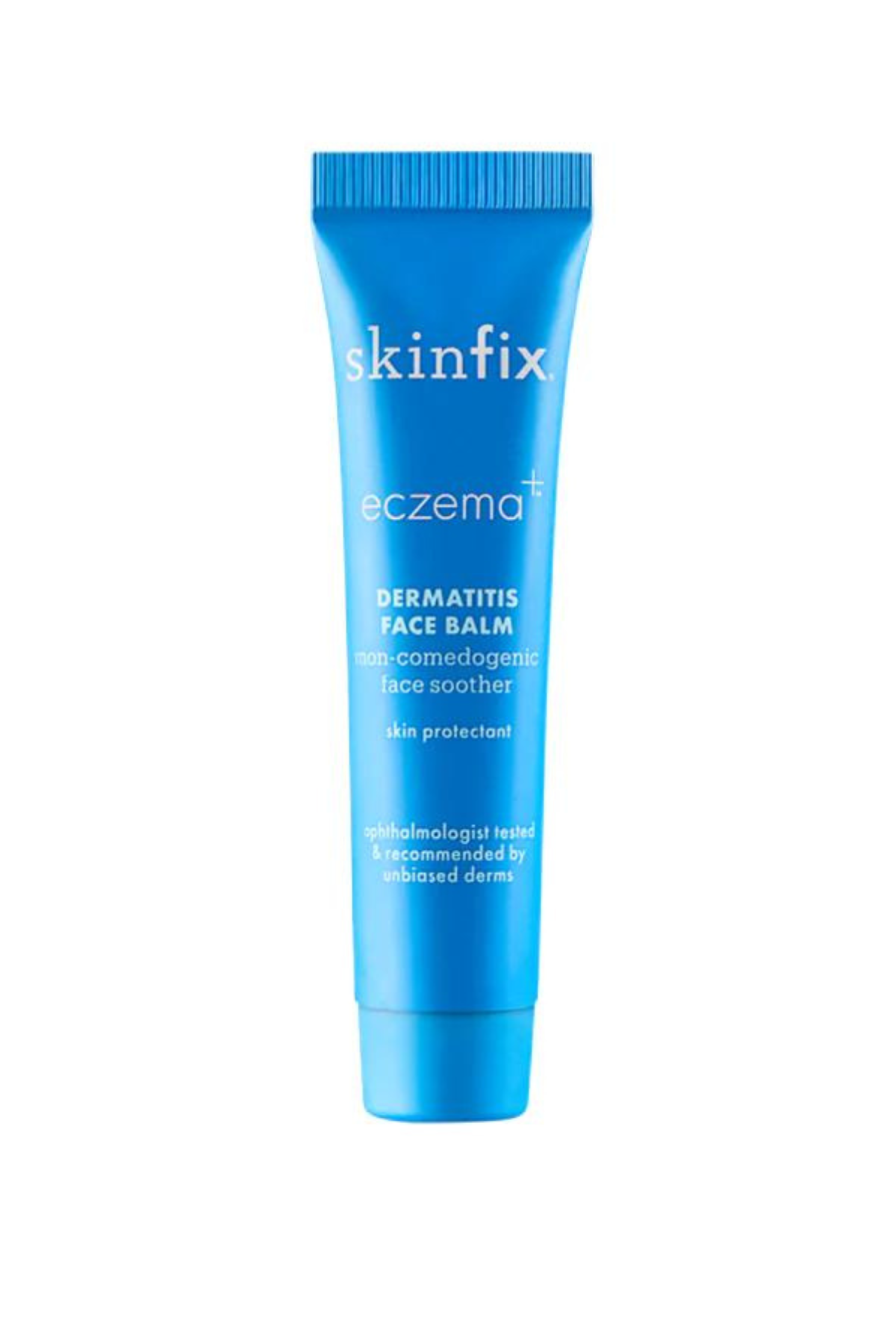
Formulated specifically for sensitive skin, this handy little balm is a mini-sized savior for facial flares. It’s dermatologist and opthomologist tested, so rest assured it’s safe for use anywhere on the face and eyelids. It is designed for targeted treatment, so only apply the product where you’re having an issue. That in mind, it does contain pharmaceutical-grade active ingredients like colloidal oatmeal, so the brand recommends stopping use after seven days.
Pros: Spot treatment; Safe for eyelids
Cons: Not everyday treatment
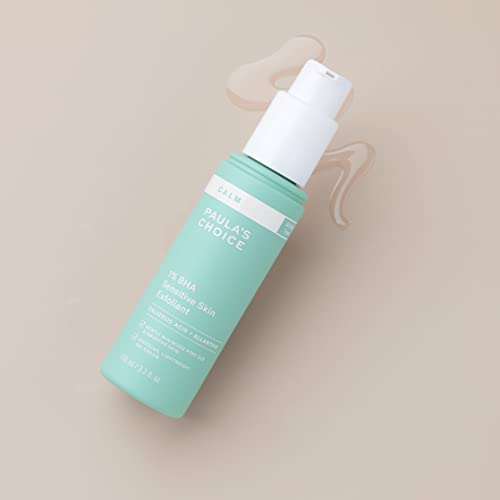
Exfoliating and eczema don't usually go hand in hand. While I wouldn't recommend using this during an active flare, it is safe when your skin is under control. It's been developed to play nicely with sensitive and eczema-prone skin and is incredibly gentle. Still, it helps overturn dead skin cells and reveal a brighter, fresher complexion.
Pros: Gentle; Clinically tested
Cons: Can't be used during an active flare
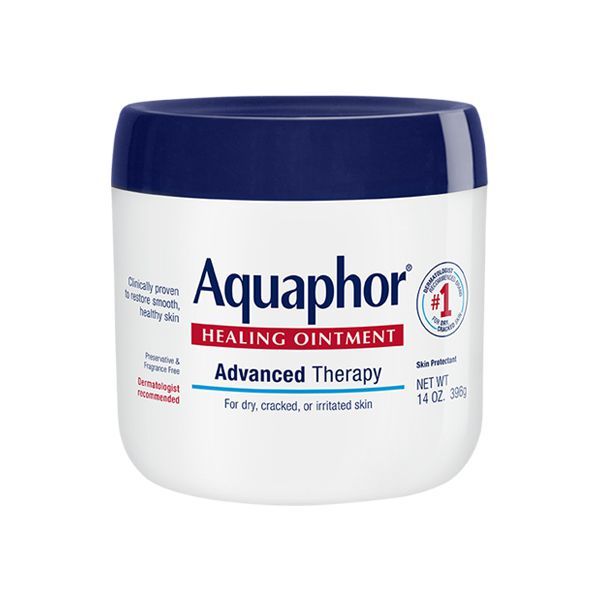
Aquaphor is a petroleum jelly–based ointment that the pros recommend slathering on your skin immediately after a shower or bath to lock in moisture. It won't leave irritated skin feeling even more irritated, and it'll provide a barrier between your skin and anything that might hurt it (the weather, pollutants, etc). I like using the kind developed specifically for babies—to me, it's the gentlest.
Pros: Affordable; Multi-purpose
Cons: Sticky texture
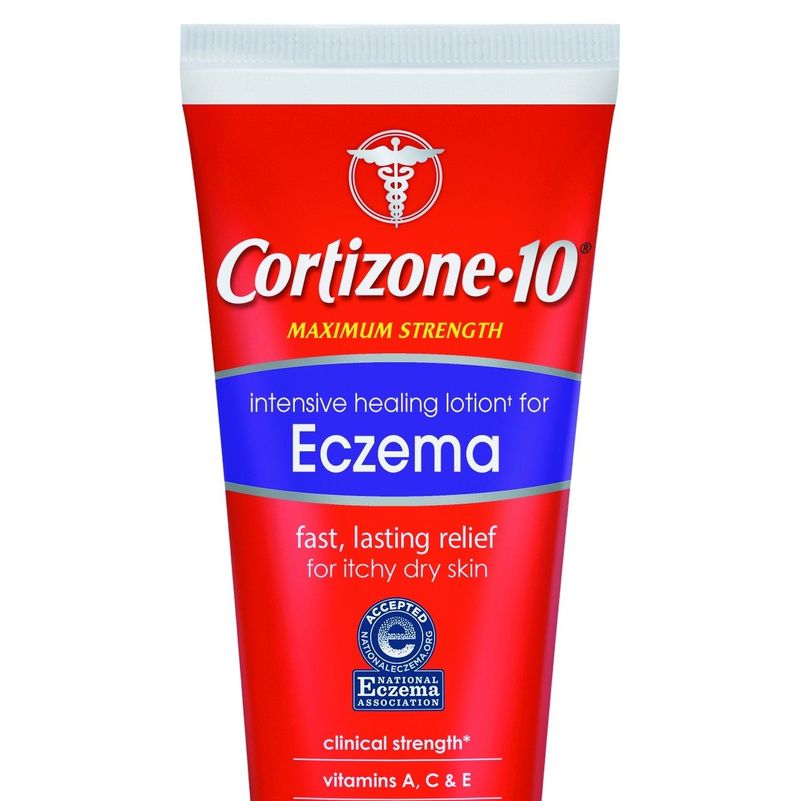
This one isn't for the faint of heart, but if you want to steer clear of prescription creams, try this during a flare-up—it's for that moment that you can't bear to itch anymore. However, it is important to note that while this can be successful in a pinch, it's not a long-term treatment. Dermatologists don't recommend using hydrocortisone on the face for more than three days.
Pros: Fast acting; Effective; Anti-itch
Cons: Must be stopped after three days
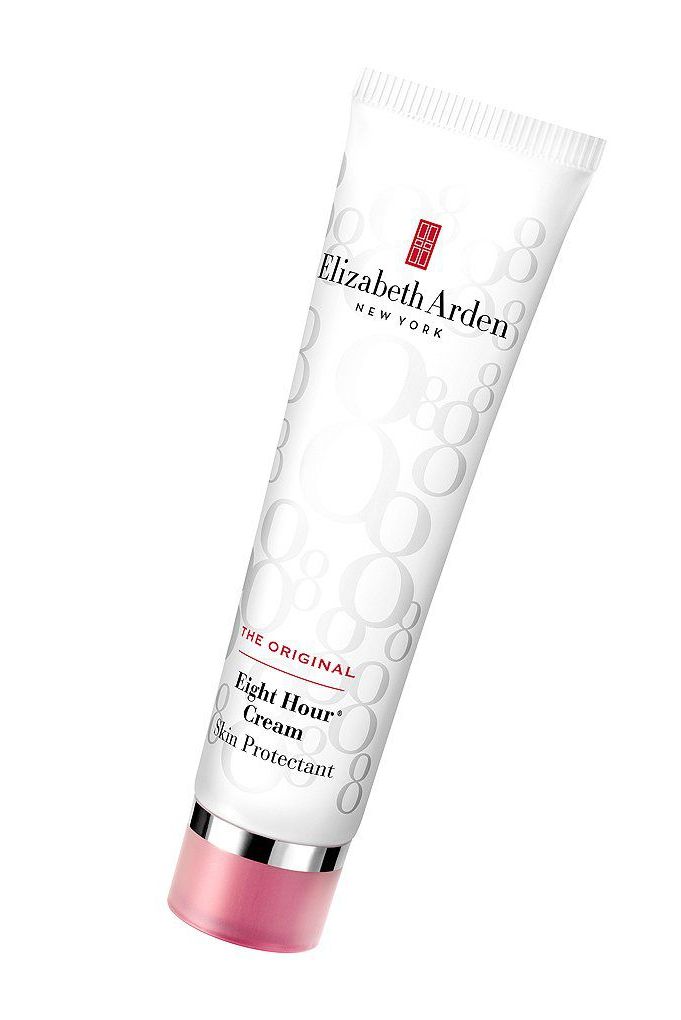
This Eight Hour Cream is legendary in skincare circles. While not developed for eczema specifically, I've found that a tiny amount of this goes a long way toward treating my issues—it's thicker and stickier than most of the others on this list, but it also sits more comfortably on my sensitive skin than any other premium skincare product. In particular, if you get eczema on your lips (or have dry, cracked lips generally), this is perfect—make sure you get the fragrance-free kind.
Pros: Preventative; Great for lips
Cons: Expensive; Sticky
What Causes Eczema?
“Eczema causes are multifactorial,” explains Dr. Greenfield. “Genetic and environmental factors can trigger an inflammatory cascade that results in itching, scales, and redness.” Dry skin is by and large the biggest trigger, which is why people might notice more flares during the winter or in cold weather.
What Are the Types of Eczema?
“There are a lot of different kinds of eczema,” explains Dr. Gohara. While most eczema will be treated the same way, a quick visit to your doctor can help identify the specific type of eczema you’re dealing with. “Nummular eczema appears as round, red, and scaly plaques and most commonly presents on the arms and legs,” says Dr. Greenfield. “Dyshidrotic eczema shows up as small fluid-filled vesicles on the fingers and toes on the hands and feet.” There’s also atopic dermatitis, which is a bumpy rash that’s very common in babies.
When Should I See a Doctor for Eczema?
While using a tried-and-true eczema cream will do the job for some people, others might have to pay a visit to the dermatologist for a prescription steroid cream. “You should see results in two weeks, but see a doctor if the rash does not improve, worsens, or becomes itchy or painful," adds Dr. Greenfield.
That in mind, scroll ahead to shop for the best face creams for eczema. From ultra-nourishing drugstore options packed with calming and nourishing ingredients to dermatologist-formulated balms that promise overnight results, we’ve rounded up the top-rated products, below.
Meet the Experts

Dr. Nava Greenfield is a dermatologist practicing at Schweiger Dermatology Group. Dr. Greenfield earned her Bachelor’s Degree from Queens College, City University of New York, where she graduated Cum Laude with honors in mathematics, natural sciences, chemistry and biochemistry. Dr. Greenfield attended medical school at the Albert Einstein College of Medicine, Yeshiva University.
Dr. Greenfield has been published in many medical journals, including The Journal of Dermatological Treatment, and the Journal of Women’s Dermatology and Pediatrics. Dr. Greenfield is a member of the American Academy of Dermatology, Alpha Omega Alpha Honor Medical Society, Women’s Dermatologic Society and the American Medical Association.
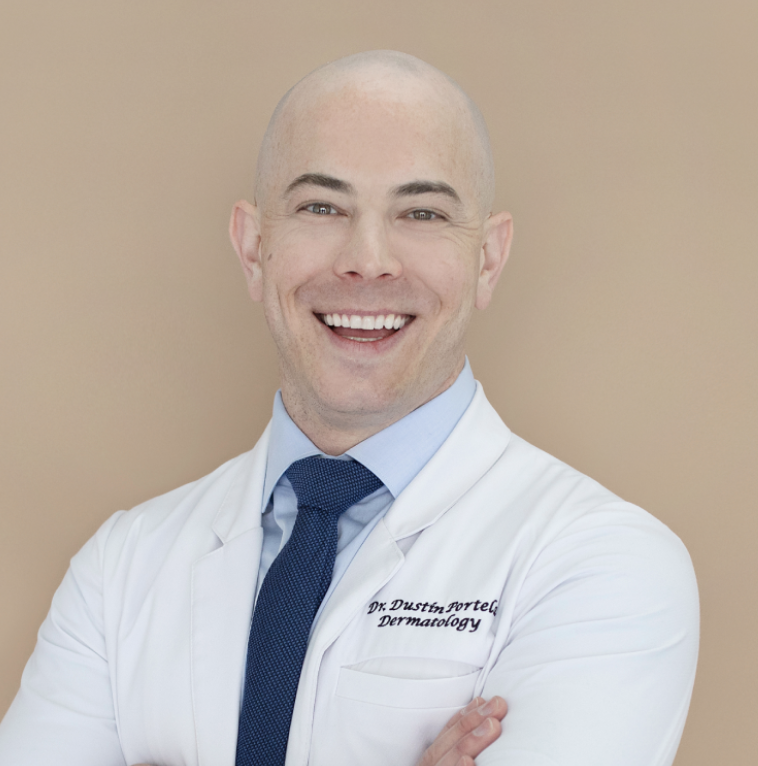
Dustin Portela, D.O., is a Board Certified Dermatologist and Dermatologic Surgeon. He is certified through the American Board of Dermatology. His professional interests include skin cancer surgery and facial reconstruction, skin cancer prevention, complex medical dermatology and wound healing. Dr. Portela has lectured at national dermatology meetings and has published articles in several medical journals. Dr. Portela graduated with an Honors-Bachelor of Science in Zoology from Idaho State University. He received his medical degree at Des Moines University in Des Moines, IA graduating among the top of his class and being recognized with the Award for Excellence in Physiology.

After graduating from medical school with AOA honors, Dr. Mona Gohara did her dermatology training at Yale New Haven Hospital, where she served as chief resident. Dr. Gohara continues to teach at Yale where she holds a faculty appointment as an associate clinical professor. Dr. Gohara and her husband have two tween boys.
Besides mothering and doctoring, she spends time educating the public on skin health, skin cancer, and sun protection. She has done this through writing, lecturing on the local, national, and international level, and by engaging popular media. Dr. Gohara serves as Vice President of the Women’s Dermatologic Society. She is an active member of The American Academy of Dermatology, where she chairs the Social Media Task Force, and The American Society For Dermatologic Surgery, where she chairs the Media Relations Work Group.
Get exclusive access to fashion and beauty trends, hot-off-the-press celebrity news, and more.

Samantha Holender is the Senior Beauty Editor at Marie Claire, where she reports on the best new launches, dives into the science behind skincare, and shares the breakdown on the latest and greatest trends in the beauty space. She's studied up on every ingredient you'll find on INCI list and is constantly in search of the world's glowiest makeup products. She's constantly tracking the biggest nail and hair trends to pop up in the beauty space, going backstage during fashion weeks, tracking celebrity looks, and constantly talking to celebrity hair stylists, nail artists, and makeup artists. Prior to joining the team, she worked as Us Weekly’s Beauty and Style Editor, where she stayed on the pulse of pop culture and broke down celebrity beauty routines, hair transformations, and red carpet looks. Her words have also appeared on Popsugar, Makeup.com, Skincare.com, Delish.com, and Philadelphia Wedding. Samantha also serves as a board member for the American Society of Magazine Editors (ASME). She first joined the organization in 2018, when she worked as an editorial intern at Food Network Magazine and Pioneer Woman Magazine. Samantha has a degree in Journalism and Mass Communications from The George Washington University’s School of Media and Public Affairs. While at GWU, she was a founding member of the school’s HerCampus chapter and served as its President for four years. When she’s not deep in the beauty closet or swatching eyeshadows, you can find her obsessing over Real Housewives and all things Bravo. Keep up with her on Instagram @samholender.
- Jenny HollanderDigital Director